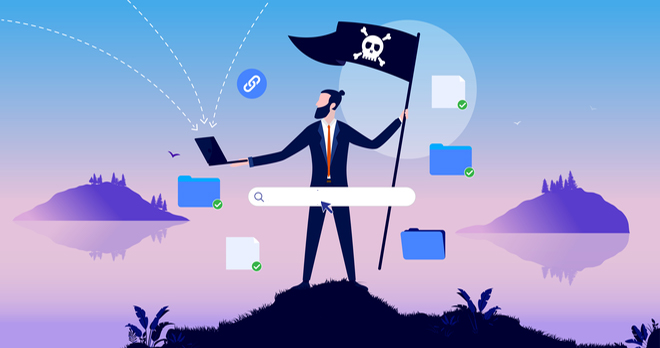Digital Piracy : who’s winning the war?

The Protagonists
On one side are the alleged copyright infringers who share material with the public without a licence from the owners, including those operators of cyberlocker and stream ripping websites and apps.
- Cyberlocker – An online service that allows users to store and share files.
- Stream ripping – The conversion of streamed audio content into permanent audio downloads capable of storage for future listening and sharing.
The operators of these sites profess, with a fair degree of correctness, that they provide a legitimate service. Cyber-locking enables the sharing of any type of work-related files. Users of stream ripping software often argue that all they are doing is re-formatting music (and music videos) that they already own so that they can listen offline. Why should they have to pay twice?
On the other side of this digital war are the rights holders; the music and entertainment companies who own the copyright in the recordings.
The Battle Site
This war is being played out on the World Wide Web, hence the digital references and nature of the combat. Caught in the crossfire are the internet service providers. An Internet service provider (ISP) is an organization that provides a myriad of services for accessing, using, or participating in the Internet. Internet service providers can be organized in various forms, such as commercial, community-owned, non-profit, or otherwise privately owned. Examples are; BT (PlusNet), Sky Broadband, and Virgin Media being perhaps the big 3.
What’s the issue?
The law on copyright provides that it is illegal to make an authorised copy of another’s work. Whether one is stream ripping a music track from a stream service or uploading a file (such as a film) from a subscription service, it is, as a matter of copyright law, theft to do so without the permission of the copyright owner. Users of stream ripping apps and cyberlocker sites do not seek permissions, and as a consequence the copyright owners lose out on significant revenue through otherwise pre-paid licence fees. It is not therefore a victimless crime. If that were not true then why not pay for the music track by buying it from iTunes, rather than ripping?
It simply isn’t possible for the rights holders to take action against each individual who illegally “copies” a film or music track or other performance work. So, they target those who create and operate the sites and apps offering the software to enable cyberlocking and stream ripping.
The Legal Battles
For as long as performance works have been available on the internet so piracy has occurred. Indeed, it’s the logical developments from previous copying of audio tapes and video tapes (ahhh those were the days!). As if taking legal action, often across international territories, wasn’t difficult and expensive enough, the ability to rip (copy) say a musical track, before converting it into a downloadable file that can be used offline, has made things tougher. In order to circumvent the many difficulties presented to the rights holders, they increasingly look to remove the wrong-doers platform; the internet. Without access to the web, the Defendants cannot operate. To continue the military analogy, take away the opponent’s weapons and he is rendered harmless.
By targeting these otherwise innocent internet servicer providers, the rights holders have created new laws necessary to beat the copyists, examples being court orders requiring the ISP to name their infringing customers, and the implementation of the Digital Economy Act 2010.
Under the Act, an ISP must;
- Notify users that they have been infringed;
- Retain information on the number of times the users have infringed and been subject to notification;
- Provide copyright owners with lists of those who have been accused of infringing at least three times in a year.
Recent Developments
In February 2021 the English High Court issued two blocking orders in favour of the major record labels in the UK. The order requires the six largest UK ISP’s (who share 91% of the fixed broadband market) to block access to a cyberlocker, allegedly used to infringe the Claimant’s copyright. This is the first time that such an order has been made. The Judge held that the named cyberlocker’s actions themselves directly infringed copyright by performing unauthorised acts of communication to the public. This contrasts with the view expressed by the EU. See; Capital Records & Others v. BT & Others [2021] EWHC 409 (Ch).
The Court also made a blocking order on the application of members of BPI (who hold nearly 99% of all sound recordings in the UK) against the major UK ISP’s in respect of a number of stream ripping sites and their apps. The Judge accepted that copyright infringements were committed by:
- Users of the sites and app and;
- The operators of the sites and apps.
See Young Turks Recordings Ltd & Others v BT [2021] EWHC 410 (Ch).
Conclusion
The above two Judgments are without doubt significant victories for the copyright owners and if these Judgments are followed not only by the Courts in the UK, but also the EU, and wider afield, then perhaps the tide is turning in favour of the rights owners, but data protection and the underlying desire of keeping the internet an open source for users across the worldwide digital community make it uncertain, but what is certain is that just as quickly as the technology advances for the lawful exploiting of musical and artistic works, so too will the means to share it illegally.